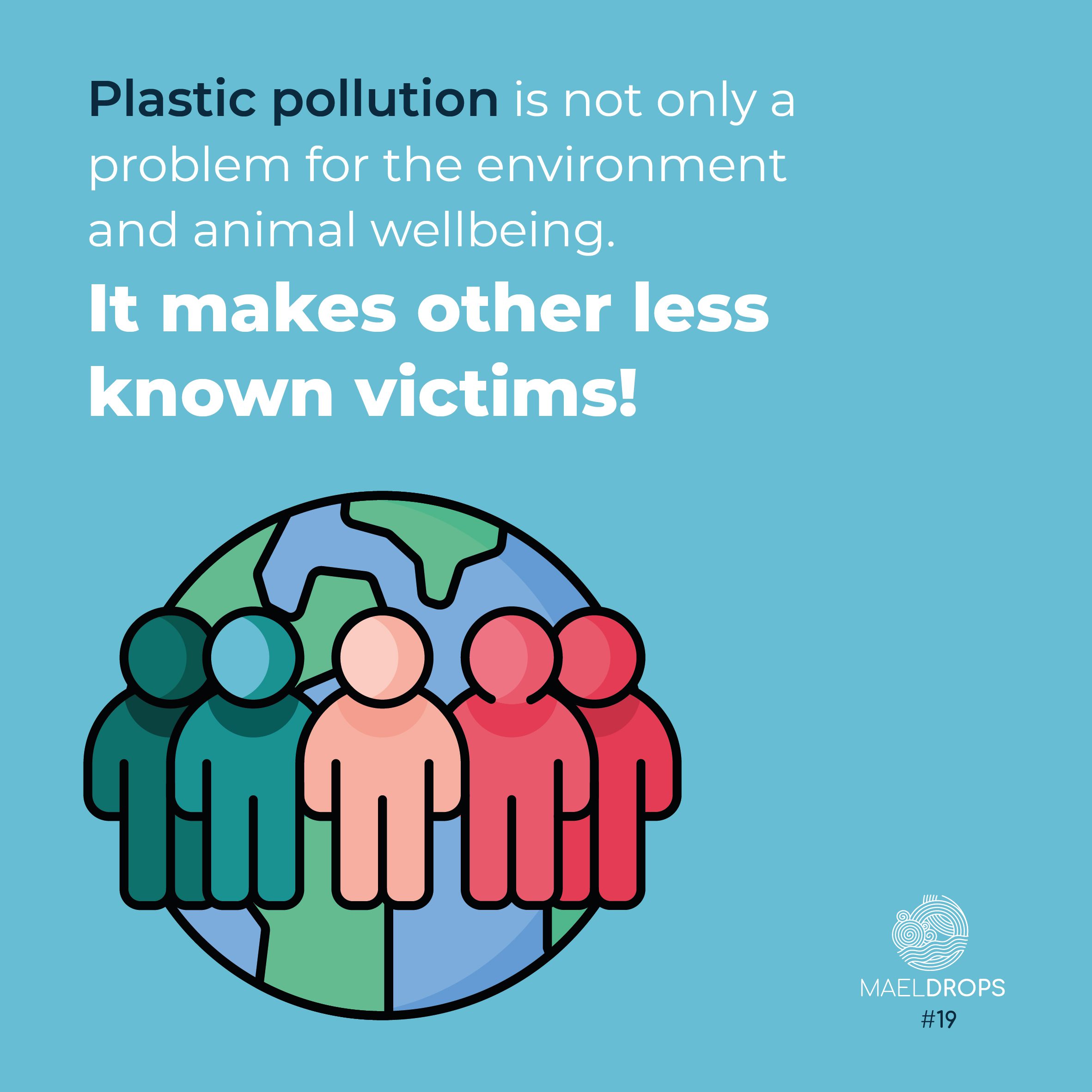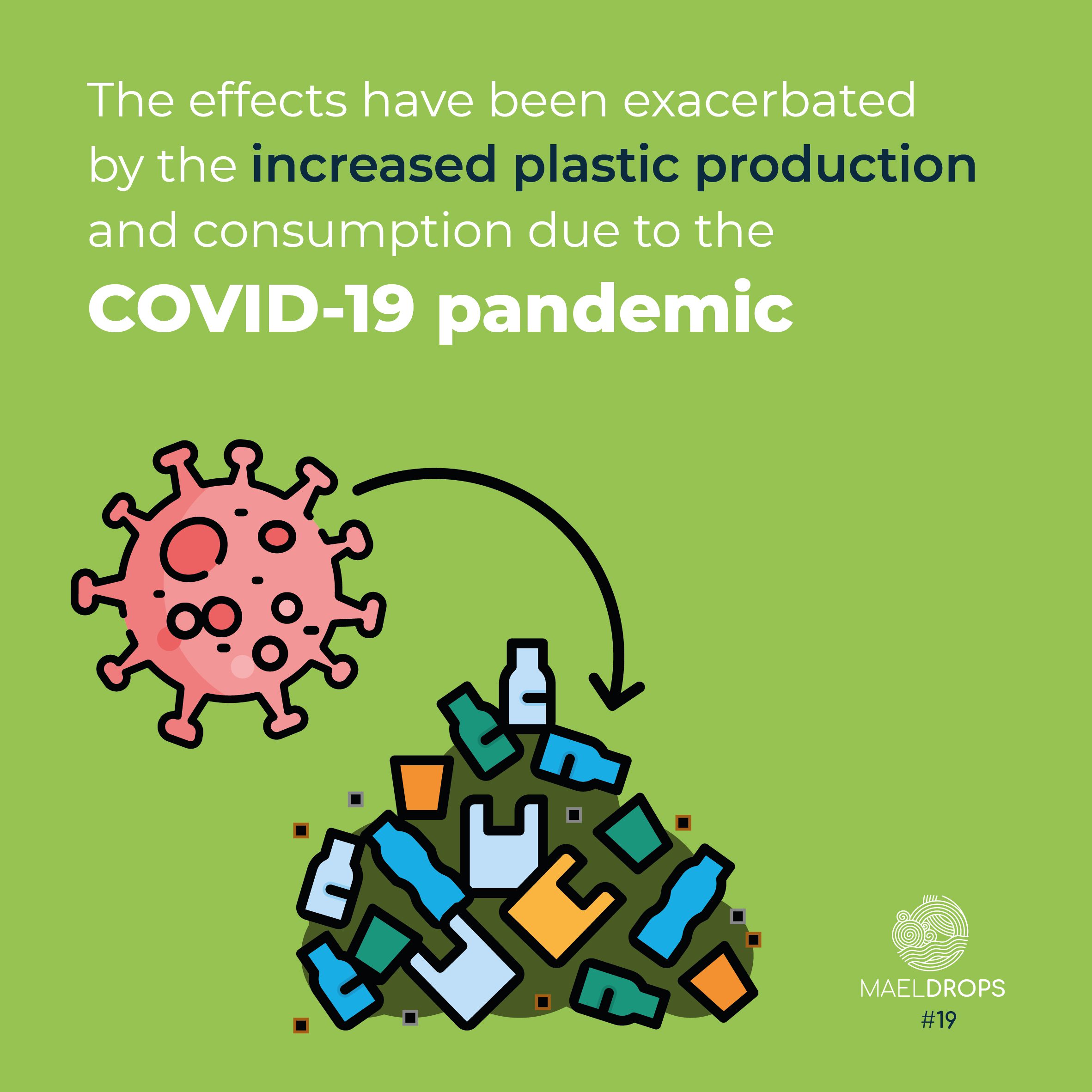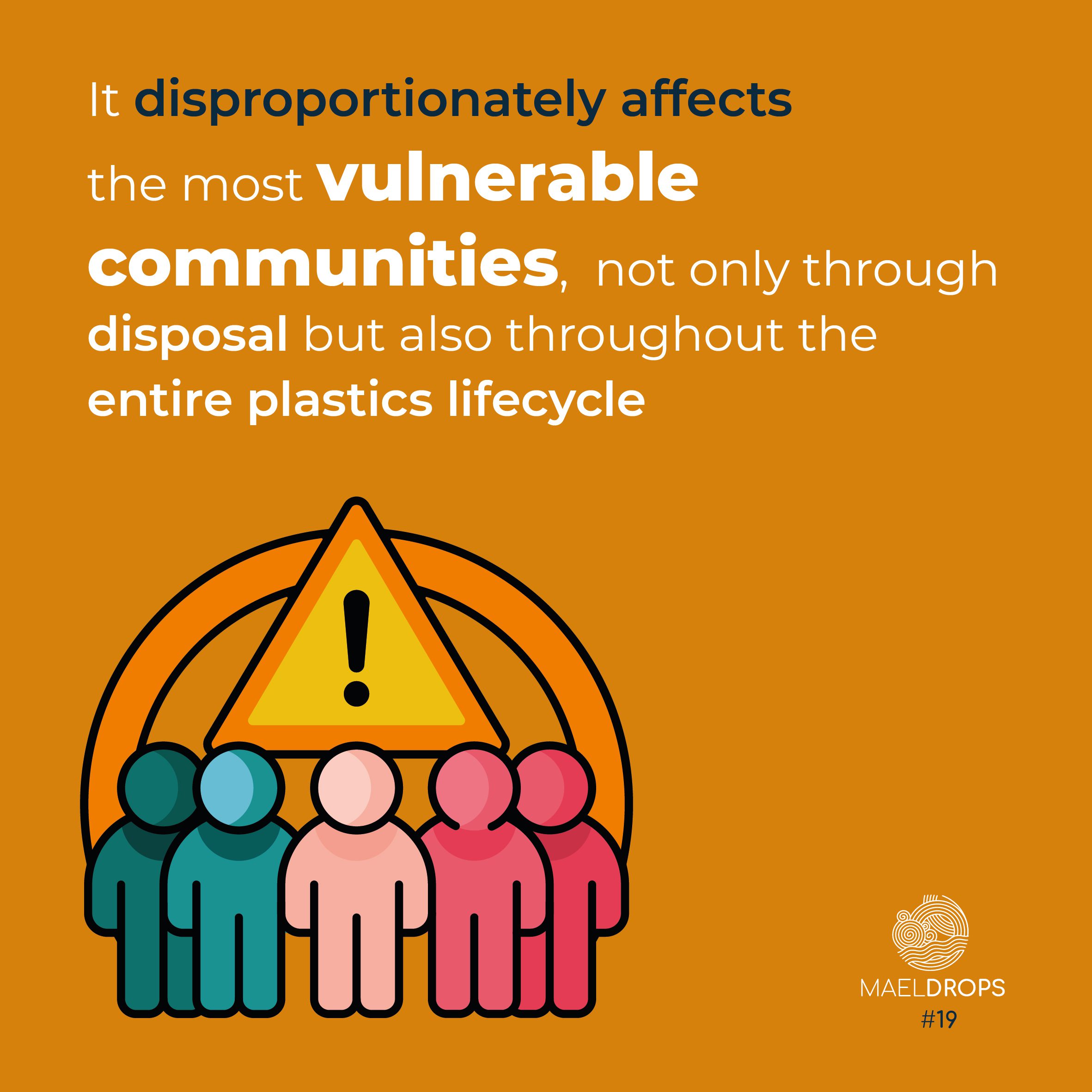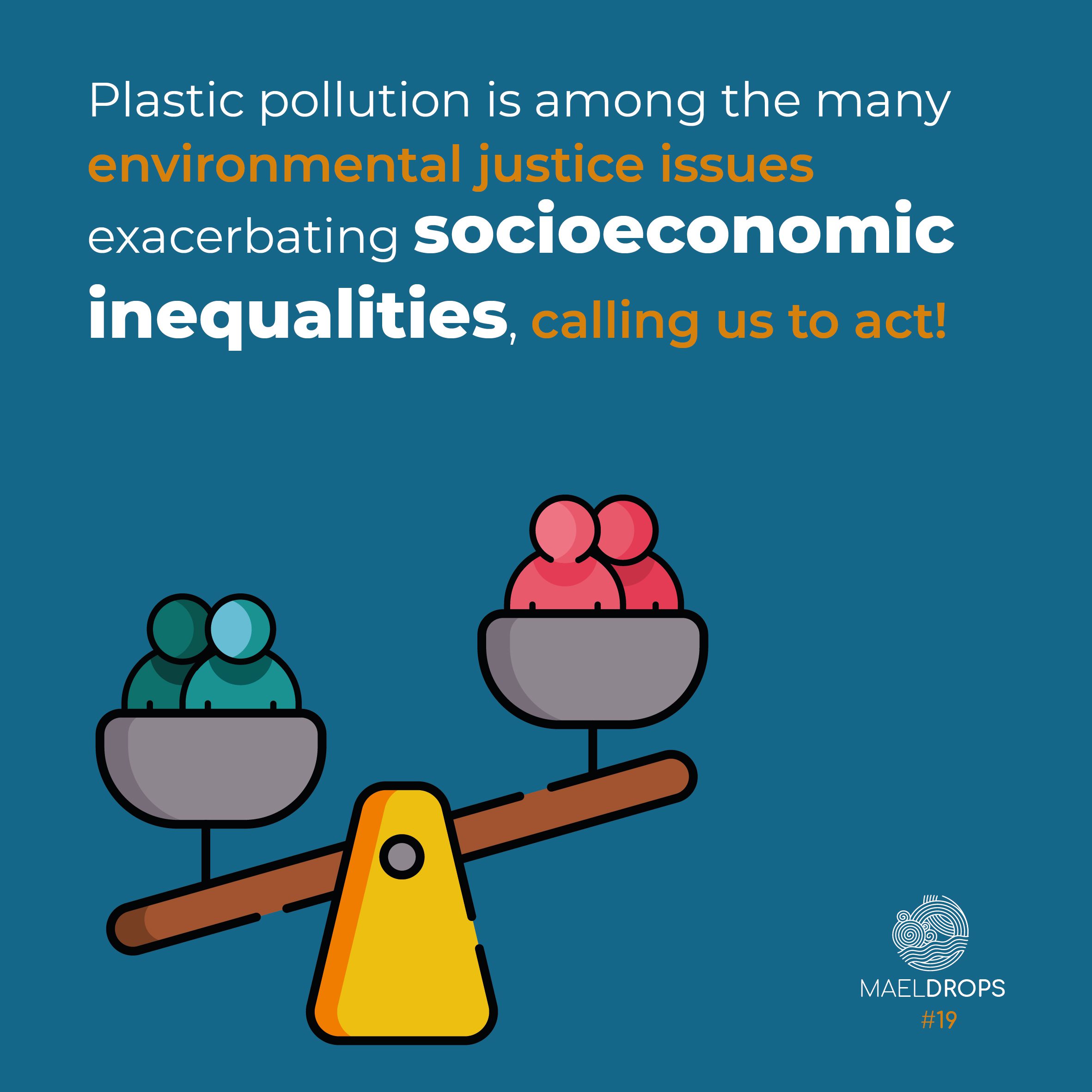MAELDrop #19 | Plastic pollution is also an environmental justice issue
The environment and animal wellbeing are the most well-known victims of plastic pollution. But there are others, lesser-known victims of plastics. In fact, the impact of plastic pollution disproportionately affects the planet’s most vulnerable communities communities, exacerbating socioeconomic inequalities globally. These are the main conclusions of a report published in 2021 by UNEP and the NGO Azul, which is dedicated to supporting grassroots communities to conserve marine resources.
The report documents the unfair effects of plastic at every stage of its life cycle: from the extraction of raw materials, leading to the destruction of habitats and the contamination of water and soil, to the production process, which often exposes those living near the industries not only to toxic chemicals but also, indirectly, to pollutants from, for example, trucks, and, of course, to the disposal phase. Inadequate plastic disposal, for instance, alters marine ecosystems, contributing to acidification and impacting the food chain-a detriment to the environment and to communities that rely on fish as their main source of protein.
As the report reminds, all these effects are exacerbated by the increased production and consumption of plastic linked to the COVID-19 pandemic.
Plastic pollution is, in short, a real issue of environmental justice – one of the many. As Marce Gutiérrez-Graudiņš, co-author, of the report and founder and Executive Director of Azul, says: “Plastic pollution is a social justice issue. Current efforts to manage and decrease plastic pollution are inadequate to address the full scope of problems it entails. Disparate impacts on communities affected by plastic, at every point from production to waste, should make environmental justice a customary consideration within the marine conservation field.”



